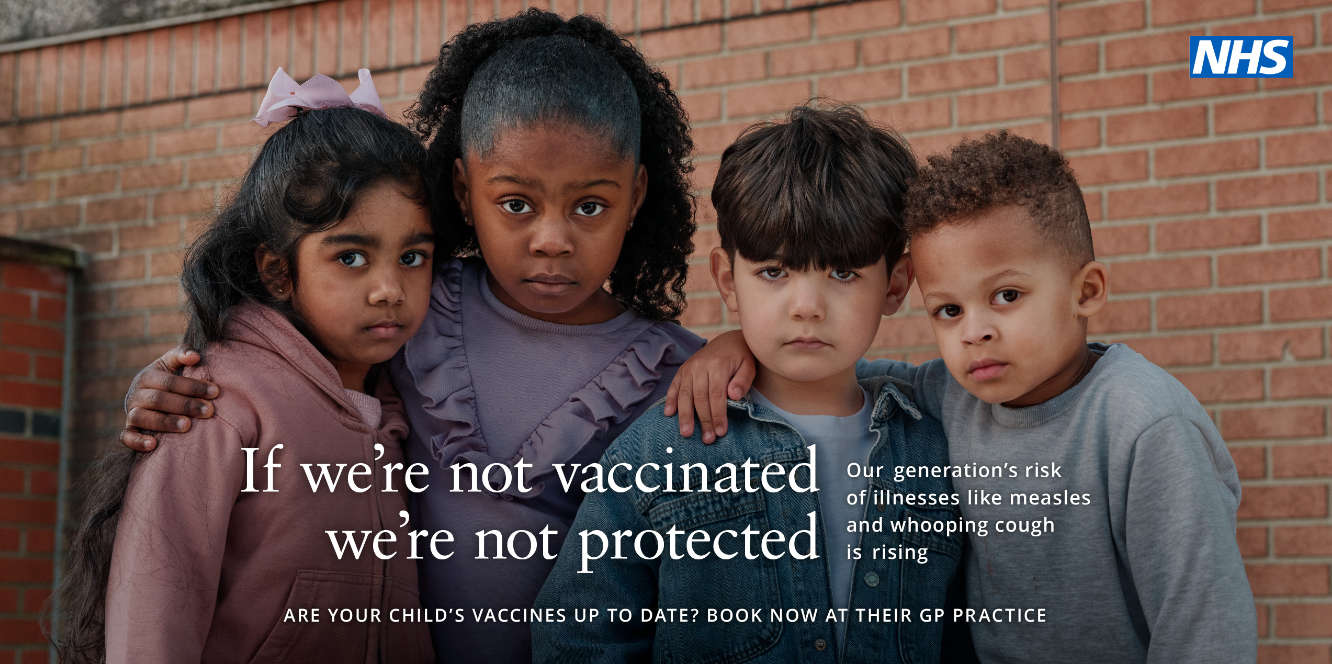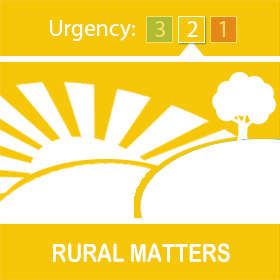
The UK Health Security Agency South West urges parents to catch up on missed vaccinations before school starts, as the second phase of the Childhood Immunisation Campaign launches amid concerns of a measles surge.
- From 1 January to 29 August 2024, there have been 28 lab-confirmed measles cases in the South West
- Uptake for the first dose of the MMR vaccine in 2-year-olds in the South West is 92.5%, with uptake of two MMR doses for 5 year old children at 89.8%
- Check if your child is up to date with their MMR vaccines by checking their red book or contacting your GP practice
- It is never too late to catch up. If anyone has missed one or both doses of the MMR vaccine, contact your GP practice to book an appointment
The UK Health Security Agency (UKHSA) South West is today issuing an urgent call to parents and carers to ensure their children catch up on missed vaccinations before they head to the classroom, as we launch the second phase of the Childhood Immunisation Marketing Campaign across England amid fears of a further surge in measles cases as the new term begins.
In the South West, by the time they’ve started school, almost 1 in 10 children is not fully protected from MMR.
This campaign[1], being delivered by UKHSA, the Department for Health and Social Care (DHSC) and NHS England, will remind parents and carers of the risk of their children missing out on protection against serious diseases, including measles, whooping cough, meningitis, diphtheria and polio.
Since 1 January 2024, there have been 28 cases of measles in the South West.
There have been a number of major measles outbreaks in the West Midlands, North West and London with sporadic cases across the country – resulting in the highest number of cases in England since 2012.
This prompted the launch of wide ranging MMR catch-up activities targeting communities with low uptake led by NHS and other partners between August 2023 and April 2024, for children who missed MMR vaccines.
An MMR Evaluation Report published today by UKHSA assesses the impact of the catch-up activity. This shows that parents are coming forward and there has been a significant increase in MMR uptake, particularly among deprived and ethnic communities.
The report shows that between August 2023 and April 2024:
- The NHS has delivered 180,000 additional doses, with over 51,000 of these given to children aged 5 or under;
- over 13% of previously unvaccinated children aged 5 years or under were vaccinated with MMR1 during the campaign period compared to baseline;
- a 4.9% increase in uptake of MMR2 in Black, Black British, Caribbean, or African children aged between 3 years 7 months and 5 years.
However, MMR uptake rates are still too low in some areas in England and there is still potential to see outbreaks, particularly as children start mixing more on starting or returning to school.
Measles spreads very easily among those who are unvaccinated, especially in nurseries and schools. It can be a very nasty illness and, in some children, can be very serious, leading to hospitalisation and life-long complications and tragically even death in rare cases. Getting vaccinated not only gives children protection but it also helps to prevent the spread of the disease and protect those more vulnerable.
Professor Dominic Mellon, Deputy Regional Director, UKHSA South West said:
“As a father and health professional, it is especially tragic to see kids suffering when these diseases are so easily preventable.
“Two MMR jabs offer the best and safest protection against measles, but if unvaccinated children are at risk of serious illness or life-long complications. No parent wants this for their child.
“It is encouraging that parents, whose children have missed vaccines are now coming forward, but we are a long way from ensuring all are protected and safe. And importantly vaccination is also about not spreading the disease to others who may be more vulnerable.
“Measles is highly infectious and is still circulating in many areas across the country including the South West. It only takes one case to get into a school or nursery where many children are unprotected for numbers to suddenly surge.
“Our campaign will be visible across multi-media channels and sees children urging their parents to get them protected.
“Parents should check their child’s vaccinations Red Book to ensure they are up to date with MMR and all their vaccines. If unsure, contact your GP practice, who can check and provide the vaccinations your child needs. Don’t put it off, please act today.”
The campaign will share the urgent message that “if children aren’t vaccinated, they’re not protected” with parents across the country for the next six weeks. This will go live as the new early years settings and school term begins, in an attempt to prevent a rise in measles cases similar to that seen in October 2023.
The emotive campaign delivers a powerful message told from the perspective of children about the rising risk of childhood diseases. Parents and carers will see the campaign across broadcast TV, on demand and community TV as well as radio, outdoor posters and social media. It is running with higher coverage in London, the West Midlands and the North West where vaccine uptake is lowest.
Dr Alison Mackenzie, Consultant in Public Health Medicine and Screening and Immunisations Lead for NHS England South West said:
“We know that measles can be very serious, so it’s critical that our children in the South West are fully protected through vaccination.
"We’re making progress, but need to do more, especially to protect those who haven’t had their second dose, which is about 10 per cent of five-year-olds across the region, and nearer 15% in some areas.
"Each of those children is at higher risk, so I would urge parents to check that their children have had two doses of the MMR vaccine and if they are unsure to contact their GP with the new school term about to begin.”
Minister for Public Health and Prevention Andrew Gwynne said:
“Measles cases have spiked significantly in recent years and can spread quickly among those who are unvaccinated. It can be a serious and sometimes deadly disease. Vaccines are our best form of protection, and it is vital that children receive all their vaccinations.
“With the autumn term just around the corner, I am urging all parents to catch up on any missed jabs to keep children safe as they return to the classroom or nursery.”
Over the past decade uptake levels of childhood vaccines offered through the routine NHS vaccination programme in England have been falling across all vaccines, including those that protect against whooping cough, measles, mumps and rubella, polio, meningitis and diphtheria - with England no longer having the levels of population immunity recommended by the World Health Organization that is needed to prevent outbreaks. Crucially, lower vaccine uptake within communities is directly linked to wider health inequalities.
Encouragingly, the MMR Evaluation also found that by the end of April 2024:
- For MMR1, the greatest increases in coverage in children aged under 5 years were observed in London, which has some of the lowest uptake rates in the country.
- For MMR2, the greatest increases in coverage in children aged under 5 years were observed in the North East and Yorkshire.
- The largest coverage increases for MMR1 and MMR2 were consistently seen in ethnic groups, with historically lower MMR coverage.
- For both MMR1 and MMR2, the greatest increase was observed in the most deprived areas.
In addition to national activities, various regional efforts to improve vaccine uptake have been locally devised, procured and delivered. For example, in Bristol in the South West, a film about the MMR vaccine was produced in collaboration between the Bristol Somali community and community health partners.
The short film, titled ‘Let’s talk about MMR’ is aimed at people aged 17 to 30 of Somali heritage and includes translated versions. It features young people from the Somali community, including Dr Asha Mohamed from University Hospitals Bristol & Weston (UHBW), discussing the symptoms and possible side effects of catching measles, mumps and rubella. It also explains how two doses of the MMR vaccine provides very high protection against these serious illnesses.
For further information about the MMR vaccine, please visit https://www.nhs.uk/conditions/vaccinations/mmr-vaccine/
And for further information about the routine vaccination schedule, please visit https://www.nhs.uk/conditions/vaccinations/nhs-vaccinations-and-when-to-have-them/

 Criminal investigation into suspended Chief Constable dropped
Criminal investigation into suspended Chief Constable dropped
 Devon families receive their primary school place offers
Devon families receive their primary school place offers
 Theft of Quad Bike / Livestock Trailer and / Farm Tools - Tiverton and Withleigh Area
Theft of Quad Bike / Livestock Trailer and / Farm Tools - Tiverton and Withleigh Area
 Stay vigilant for ticket fraud ahead of top events and concerts this summer.
Stay vigilant for ticket fraud ahead of top events and concerts this summer.











